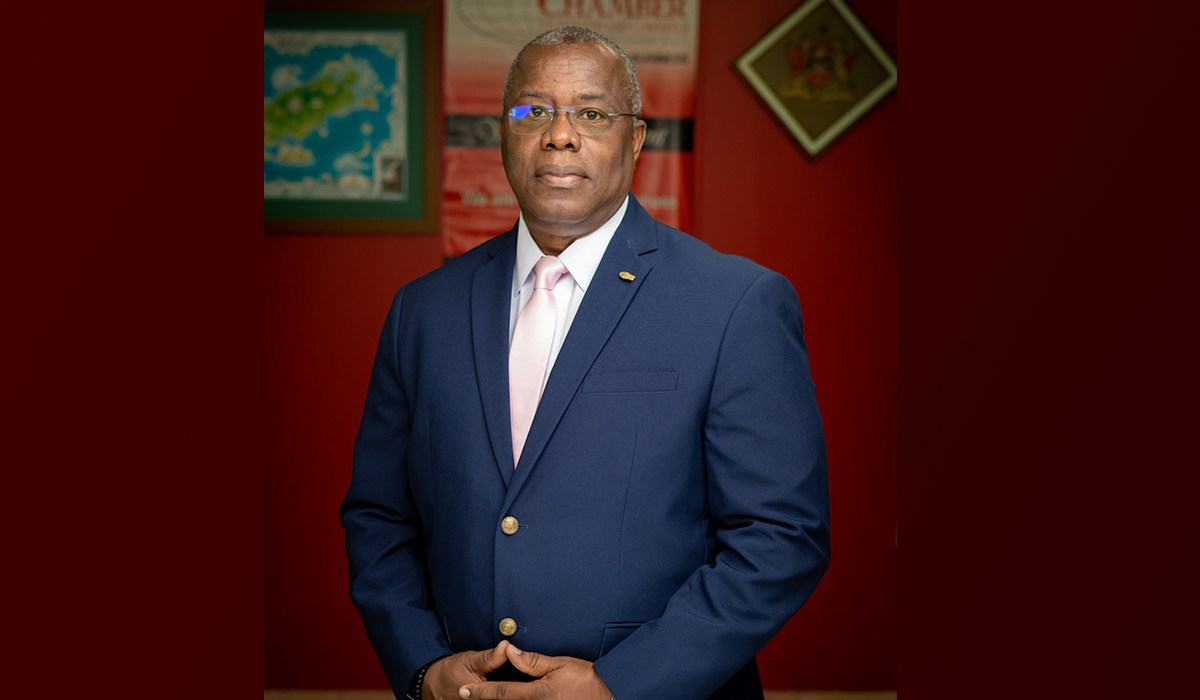
25 Feb Interview with Curtis Williams, Chairman, Tobago Division Chamber of Industry and Commerce
Could you explain the vision and mission of the Tobago division of the Chamber of Commerce and how you align and differentiate from Trinidad?
The vision of the Tobago division of the Trinidad & Tobago Chamber of Industry and Commerce is to be a leading advocate for sustainable business growth and development in Tobago. We seek to create a competitive and conducive business environment that promotes innovation, investment and local enterprise. That’s our vision for the island. The mission of the Chamber is to represent its members in lobbying for policies and benefits to the business community, providing network opportunities, first time partnership and offering valuable resources for business development. It also aims to position Tobago as a business hub while ensuring that the island’s unique environment and cultural identity are respected.
In terms of the alignment with the Trinidad Chamber, both of us have core objectives, which are promoting business growth, a strong private sector, advocating for policies that create a favorable business environment. However, Tobago differentiates itself by focusing on unique needs of the island, such as supporting tourism-based business, sustainable development and small enterprises. The Tobago economy is more tourism driven while Trinidad is a more diverse economy with a strong focus on energy and industry sectors.
Nevertheless, Tobago has numerous opportunities for investment beyond tourism; we are looking at the SMEs in agriculture and renewable energy. The Chamber has been working to enhance the business climate, supporting local entrepreneurs in various sectors, from manufacturing to technology.
Tobago is less thought of for its business landscape. What would you say to this and how would you assess the ease of doing business in Tobago compared to other islands of the Caribbean?
Tobago, because of the uniqueness of business, may become a one stop shop. When you come in to do business, it will be very easy for you to move from one step to the other. We have one or two limitations, but we’re looking at the technology, so we can use that to assist in the limitation going forward. The land license was one of the issues that we’re looking at and we’re hoping that coming out soon, we could either have the Tobago Assembly manage that whole land license, or remove it all entirely. Anything over a certain amount of acreage you need to apply for a license and that’s hampering investors coming in.
As for the ease of doing business, compared to the other Caribbean islands, we are relatively small, so reliance on tourism is very important with some infrastructure limitations, simplifying the regulatory framework, bringing positive steps towards an enhanced business environment. In comparison to other Caribbean islands, Tobago is a less crowded market with opportunity for niche investment, especially in the ecofriendly and culture driven enterprises. That’s why we are looking at boutique type hotels, which are niche and the high end five stars, which could do a lot for us on the island. And we combine that with ecotechnology which is important and we’re looking forward to that.
For fiscal 2025, Tobago will receive $381 million from the total national budget. How will this amount be used across businesses in Tobago and what are your expectations for business performance for the rest of this year and beyond?
The TTD2.59 billion ($81 million) allocation for Tobago in the 2025 national budget is more likely to be distributed among various sectors, with emphasis on infrastructure development, because we have some challenges there, tourism, healthcare and education. Specific projects are expected to include support for small business through grants, initiatives and small development loans. Because of the nature of the business on the island, we are looking at development loans, so that the loan will grow with you as your business moves to the next step, taking it to the next level.
We also want to look at road improvement, expansion of essential services to stimulate business activity. We were looking at road networking and how we can improve the networking to move from point A to point B. We want some emphasis to be placed on improving those infrastructure works.
The tourism sector anticipates a rebound, as global travel recovers from recent disruption, while other industries such as agriculture and services would benefit from private sector investment. With the coming of the new airport terminal building, that infrastructure will lead to that trickle-down effect of all the other sectors being stimulated by it. That terminal building alone will make a lot of things happen because there will be more airlift coming in, more guests coming to the island, there will be the need for high-end room stock and there will be the need for goods and services, for agriculture products, a need to move people around, for logistics and warehousing. I am looking forward to that coming.
In all this progress that the island is going to have, how do you sustain the environment? What considerations will there be in terms of sustainability?
One of the benefits we were looking at was how to get us going green. At the Chamber, we now partner with one of our associates within the Chamber, to treat waste disposal. We started a recycling and waste program. We were looking to start with a business committee where we do separation of waste. After moving that from the business sector, we want to put it to the community, where they understand the separation of waste and we do the collection on the island. But the recycling part of it is another area we look at. We have an environmental committee, an ESG committee, that is working strongly within the Chamber for that program.
How is the outlook for the hotel sector of Tobago and what are your views on the new hotel projects and others that are being considered?
The Tobago division views the divestment of the Magdalena Grand & Golf as a positive step in the revitalization of the tourism industry. This move can attract much needed private investment and expertise enhancing the island’s competitiveness as a premium tourism destination. Projects such as the Rocky Point and Kilgwyn Bay are seen as important for the tourism green.
There are valid concerns about environmental sustainability, that’s for sure. The Chamber supports the development, but being mindful of the island’s delicate ecosystem, ensuring that projects benefit the economy but preserve the island’s natural beauty. If we just go looking at money, but we’re not looking at the other aspect of it, we’re destroying our nature.
The reopening of the Magdalena Resort and the completion of similar projects reflect growing investors’ confidence in Tobago’s tourism potential. However, the Chamber emphasizes the need for careful planning, ensuring that the project aligns with Tobago’s sustainable tourism strategy and environmental goals. With proper management and investment, the Tobago tourism sector can attract higher volumes of visitors, offering eco-friendly and culturally enriched experiences. We know that with proper planning, that could make a big difference and we can attract the people. A hotel could have 500 rooms, but it must have an emphasis on the environment, on waste, so it can be a demonstrator to show off waste separation, waste disposal and recycling. As a hotel, 500 rooms will have a lot of waste and how we manage that waste will be important for the island.
What would be your final message for the readers of the Miami Herald?
Tobago is more than just a beautiful vacation destination. It’s a vibrant island with rich cultural heritage, on top business opportunities and forward-thinking entrepreneurs. As the business environment continues to improve and new projects are being developed, Tobago offers exciting perspectives for investors looking for sustainable ventures in tourism, agriculture and renewable energy.
The Chamber is committed to fostering an environment that welcomes both local and international business, ensuring that the business grows in a manner that benefits all stakeholders, while preserving the island nature. We don’t want to lose that. We don’t want to lose our friendliness or warmth. We don’t want to lose the friendly charm that the island has naturally.


Sorry, the comment form is closed at this time.